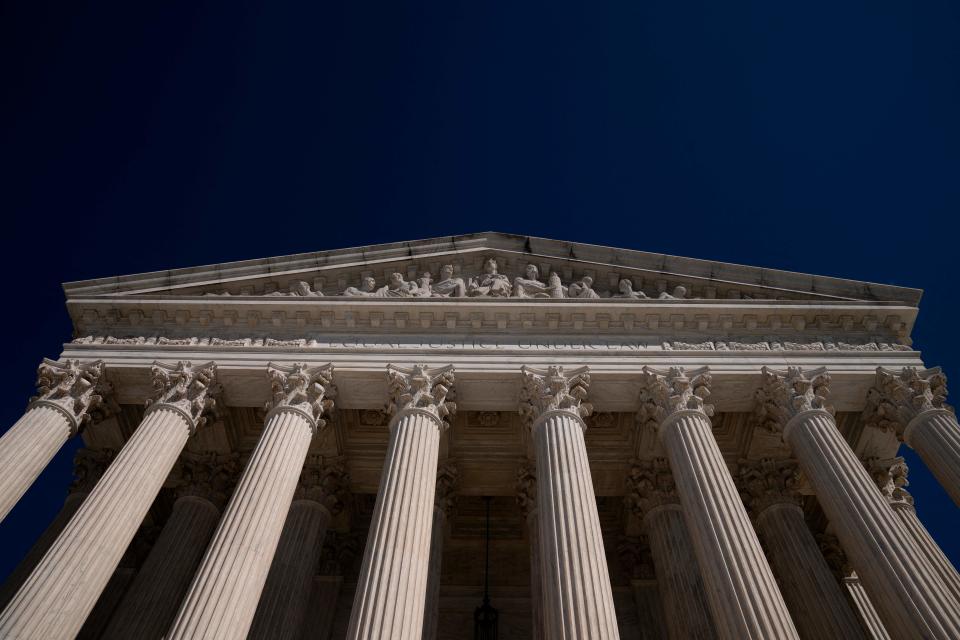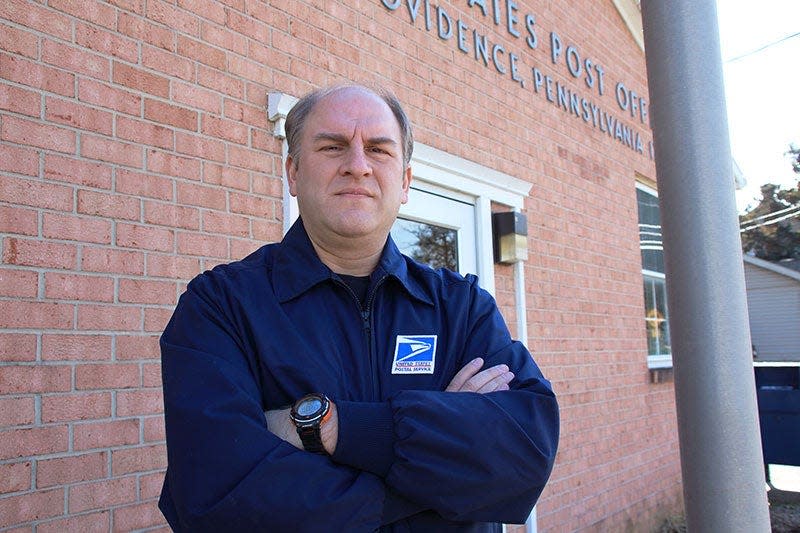Supreme Court signals it may make it easier for some workers to make religious requests
WASHINGTON – The Supreme Court signaled Tuesday it may rethink a standard that for decades has guided how employers handle religious requests from workers, such as when employees seek weekend days off for a sabbath or wear religious dress to work.
At the center of the case is Gerald Groff, a former U.S. Postal Service employee and Evangelical Christian who wanted to take Sundays off for church and rest. That presented a scheduling conflict – and a burden on his colleagues, the government has argued – after USPS started delivering Amazon packages on Sundays.
While members of the court's majority appeared sympathetic to Groff, many also appeared to be searching for a narrow outcome that might tinker with the standard used to decide how such cases are sometimes handled rather than scrapping it entirely.
What are the potential impacts of the Supreme Court's latest religion case?
Those opposing Groff fear major changes in the workplace could be in store if the Supreme Court creates a new standard for when employers are supposed to grant religious requests. That could affect schedules but also dress and conduct. Consider, some critics say, a teacher who declines to use pronouns consistent with a student's gender identity based on religious beliefs.
During nearly two hours of oral argument Tuesday, the court heard conflicting views of what has happened since the court wrestled with the issue in 1977. Groff's attorneys say too many workers have had their religious requests denied. But the Postal Service countered that those requests are often granted by lower courts.
The Supreme Court is expected to hand down its decision in Groff v. DeJoy by the end of June.

What's the current standard employers use to weigh religious requests?
Federal law requires employers to honor an employee's religious request as long as it doesn’t represent an "undue hardship." The Supreme Court defined that term in a 1977 opinion as anything having more than a "de minimis," or trivial cost, for the business.
Groff's attorneys say that standard has allowed to many employers to say 'no.'
"This court should reject the government's watered down test," said Aaron Streett, who was representing Groff. "It will provide inadequate protection for religious liberty in the workplace, and it will even gut sabbath accommodations."
Explainer: How a USPS worker's fight over Sunday shifts could change the workplace.
Tracker: A look at the key cases pending before the Supreme Court
But Solicitor General Elizabeth Prelogar, who was representing the postmaster general, argued that lower courts have regularly interpreted the standard as more generous to employees making religious requests. And she asserted that creating a new standard sought by Groff could upend the status quo for employees and employers.
"The thing I'm trying to avoid is this idea that the court would just throw it all up for grabs and say, 'we have to do this over under some new standard,'" Prelogar told the court.

What did the justices say about the standard on religion at work?
Several of the court's conservatives are already on record in other cases seeking to revisit the "de minimis" standard, including Justice Neil Gorsuch. During arguments Tuesday, Gorsuch suggested there might be common ground in clarifying that standard set by the court in 1977 was meant to be higher than a trivial cost.
"Not all courts, but some courts have taken this 'de minimis' language and run with it and say anything more than a trifling will get the employer out of any concerns here," he said. "And that's wrong....Why can't we just say that and be done with it?"
A debate that came up repeatedly Tuesday was the potential impact on other employees – such as on morale for workers who might get stuck with additional weekend or holidays shifts if one colleague begged off to honor the sabbath.
"Anyone running a business in America knows that morale of the employees is critical to the success of the operation," Justice Brett Kavanaugh said.
Several of the court's liberal justices rejected the idea of completely overturning the 1977 decision. Justice Elena Kagan noted the court's interpretation of employment law has long been understood and that Congress could have changed it – but didn't.
"For decades, this has been the rule," Kagan said. "Congress has had that opportunity to change it. Congress has not done so."
This article originally appeared on USA TODAY: Supreme Court signals a rethinking of religious requests at work

